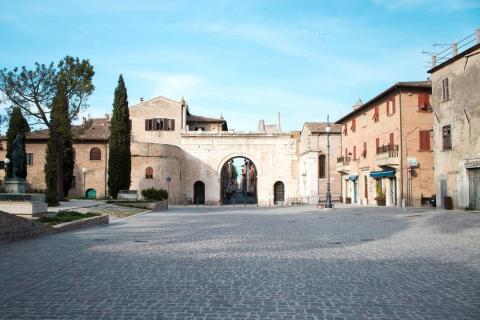Be inspired by history as you stroll among the monuments, such as the famous Porta della Mandria and the Archaeological Excavations, and be enraptured by its sites from other eras, such as the Pincio, which make Fano a little Rome, where new discoveries periodically resurface its multi-millennial history.
As evidence of the Roman period, Fano is also home to the remains of a bathhouse with an attached gymnasium and several private buildings, along with archaeological finds that are rediscovered on guided tours of the underground.
Fanum Fortunae
Fanum Fortunae owes its name to the goddess Fortune and the temple dedicated to her, erected to commemorate the battle of the Metauro river in which the roman legions defeated the Carthaginian army. It was precisely around the temple that the first settlement sprang up. An outlet to the sea of the ancient Via Flaminia, Fano was walled by Emperor Caesar Octavian Augustus, who built the gateway to the city, the Arch of Augustus, and commissioned the famous architect Vitruvius to erect a basilica here.
